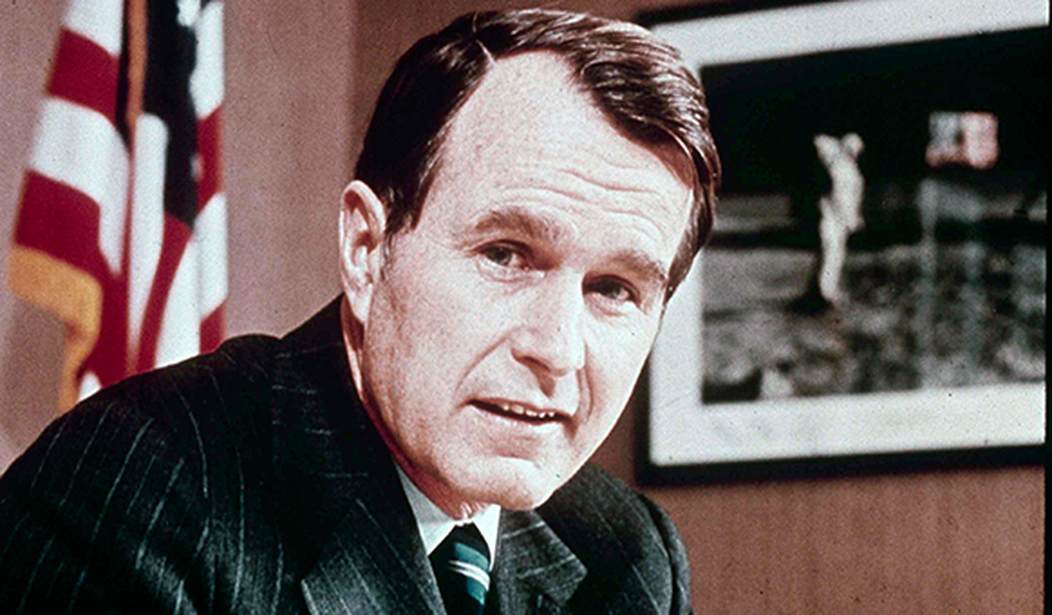As we begin a new year and reflect on the past one, we continue to honor the memory of former President George H. W. Bush. Following his passing late last year, many of us were reflecting on his record of accomplishments, and there were indeed many.
While historians and biographers understandably focus on his role in ending the Cold War with calm and forethought, one of his lesser-known achievements also has affected millions of lives for the better. Thanks to his leadership, many low-income and rural Americans continue to receive needed health care they otherwise could not afford or access.
On the day after the 1992 election, Bush quietly signed into law the Veterans Health Care Act, a legislative package aimed at improving care for people who had served our country in wartime. Tucked into that bill was an addition to the Public Health Service Act that is now known as the 340B Drug Pricing Program.
You won’t find 340B in the indexes of any of the books written about Bush’s term in office, but you can see its impact across this country in hospitals, health centers and clinics caring for those who are too often left behind.
340B is an unusual program in that it doesn’t ask the American taxpayers for one dime, yet it helps support billions of dollars in care every year. The bill that Bush signed lowered drug costs for hospitals that treat a disproportionate share of blue collar Americans, community health centers, and clinics serving rural cancer patients, those with black lung disease, and other disabling conditions. The law requires drug companies to sell their products at a discount so that those safety-net providers can use the savings to “stretch” their resources to provide more services and serve more patients.
Recommended
As our national economy has risen, fallen, and risen again, 340B has remained a steadfast source of help for working Americans. 340B providers have provided millions of patients with free or very low-cost drugs, helping to soften the impact that skyrocketing drug prices have had on all Americans. But drugs are only one part of a spectrum of high-quality care enabled by the program.
340B providers have been able to strengthen our web of coverage by paying for critical but uncovered services such as transportation and medication management. It has enabled hospitals and clinics to continue to provide services that are often significantly underpaid, including care for cancer patients, trauma care, and mental health care, and drug treatment, particularly amid the current epidemic of opioid dependency. In 2015, hospitals participating in 340B provided more than $26 billion in uncompensated care, accounting for 60 percent of all such care in the country even though they represent a little more than a third of acute care facilities.
Future presidents and Congresses followed Bush’s lead and expanded the reach of 340B so that it now includes hundreds of small hospitals located in rural communities. We have all seen and read about the impact that a rash of rural hospital closures has had on small towns and the counties that surround them. A 2017 survey of 340B hospitals found that 74 percent of rural hospitals reported the savings they receive from 340B — averaging less than $1 million a year per facility — were the difference between their doors staying open or closing for good.
Since its enactment, 340B has enjoyed broad bipartisan support. But recently, at Big Pharma’s urging, some in Congress have put forward proposals that would narrow the scope of 340B, including one bill that would cut the number of participating hospitals in half. Critics have said the program has grown too large, yet independent estimates have pegged the 340B discounts at $6 billion in 2015, or only 1.4 percent of total U.S. drug sales that year.
So far, Congress has turned back these detrimental efforts. And just recently, Health and Human Services Secretary Alex Azar announced that starting Jan. 1, 2019, the government will be enforcing a law fining drug companies up to $5,000 any time they “knowingly and intentionally” overcharge a 340B provider. HHS also announced that on April 1, 2019, it will activate a new secure website with 340B ceiling prices so providers can determine whether they are being overcharged. This follows a series of reports by the HHS Office of Inspector General that have documented numerous cases of overcharging.
This increased transparency and accountability for drug companies will provide hospitals and clinics the assurances that they are able to help patients using the full value of the benefits Bush set in motion while he was in the White House. That is good news for the nation’s low-income and rural patients and a fitting chapter in the late president’s legacy.

























Join the conversation as a VIP Member